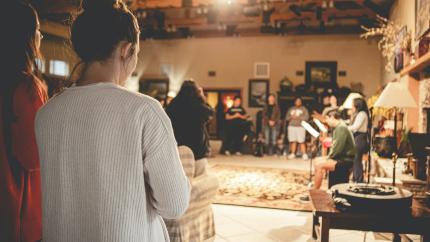
Be equipped and encouraged with our Thrive monthly email. For all church members, volunteers, and staff.
Serving in ministry, whether as a volunteer in a youth ministry, an elder or a deacon on a council, a Sunday School teacher, or a pastor, is a sacred calling. God calls and the church recognizes the calling and gifts of its members to serve in various ministry roles that build up the body of Christ. This service is a blessing to the church and often a joy to the ministry leader.
In addition to being a blessing and a joy, serving as a ministry leader is a significant responsibility. Ministry leaders are given the profound privilege and unique opportunity to care for the spiritual life of others, to come alongside and support others in their faith journey, and to be the presence of Christ to them. People look to and invite ministry leaders to guide and instruct them in matters of faith and life.
In the context of this pastoral relationship, ministry leaders have significant influence over those to whom they are ministering. Such influence can be used for great good in ways that lead to the flourishing of others. It can also be used, intentionally or unintentionally, in ways that bring harm.
In order to encourage ministry leaders to be intentional in using their influence for good, and to clarify expectations for Christlike behavior, the Synod of the Christian Reformed Church in North America adopted the Code of Conduct for ministry leaders. The Code functions to educate and remind ministry leaders of how to conduct themselves in ministry in ways that are faithful to their calling and role and bring flourishing and shalom to others. When implemented well, the Code of Conduct can help to shape the culture of a congregation, nurturing a community of respect, hospitality, and care.
This resource was designed to orient ministry leaders to the Code of Conduct. It consists of seven sessions, following the outline of the Code of Conduct, that invite participants to reflect on the Code in light of Scripture. By the end of the seven sessions, participants will have a clear understanding of the expectations for conduct set out by the Code, their Biblical basis, and how best to live out the Code in the context of their own ministry.
Wondering how your church can make use of this resource? Consider using it for:
Our hope and prayer is that this material will deepen the collective commitment of churches and ministry leaders in the Christian Reformed Church to use their influence for good and to do all that they can to resist the misuse of power that leads to harm.







